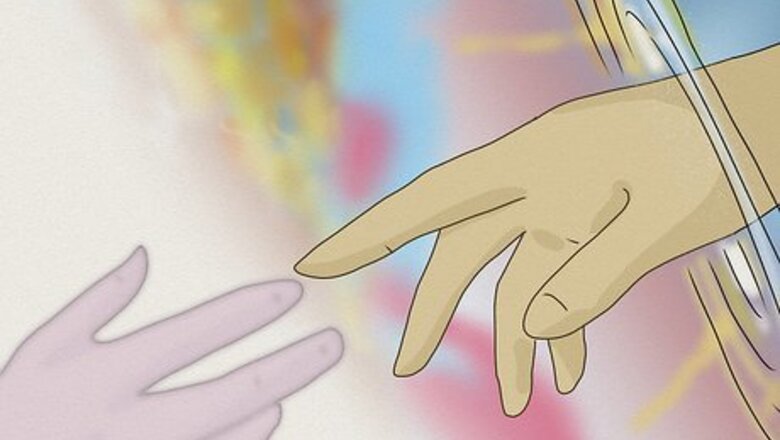
views
- Soul loss means you feel disconnected from your soul. Signs of soul loss include depression, low energy, and difficulty adjusting after a trauma.
- Reflect on the cause of your soul loss and then use mindful meditation and visualization to connect to your lost soul and retrieve it. Or, work with a shaman or therapist.
- Cultivate self-love in your daily life to nurture your soul, and seek help from a therapist or shaman if you need it!
What is soul retrieval?
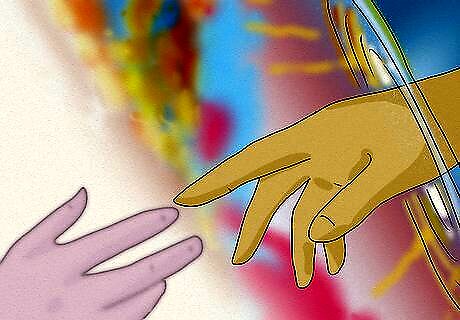
Soul retrieval is the process of getting in touch with a lost soul. To retrieve your lost soul, it’s believed that you must reforge your connection to it—usually guided by a shaman or spiritual guide of some kind. Soul retrieval (or ensoulment) means reaching into the spiritual realms to find your soul, develop a closer bond to it, and work through the issues that caused you to lose it. Keep in mind that there’s no scientific proof of souls or the concept of “soul retrieval.” Rather, soul retrieval is a practice widely accepted among shamans (practitioners who interact with the spirit world) and other spiritual healers.

Soul retrieval is considered an essential part of the spiritual journey. It may help you grow and transform as a person, freeing yourself from a previous state of dissociation or numbness (which is considered common for people with “lost” souls). Without soul retrieval, it’s believed that you may struggle to move past the trauma that caused your soul loss in the first place. While conducting a soul retrieval, a shaman is supposed to guide your soul back to you through either your head or heart. It’s also believed that you can take steps to recover your soul on your own by asking spirits to act on your behalf.
What is soul loss?

Soul loss refers to dissociation or feeling disconnected from your soul. Before soul retrieval comes soul loss, which is believed to be a kind of fragmentation that occurs after suffering an intense trauma. Essentially, when your mind is traumatized, burnt out, or you stray from your purpose, it may cause your soul to “disconnect” from your body.Soul loss is thought to be related to dissociation, which is a psychological term describing people who feel disconnected from the world around them. It’s believed to occur differently depending on your situation; you may experience soul loss all at once, or it may build gradually as you start feeling more burnt out.
How to Retrieve Your Soul

Reflect on the cause of your soul loss. To retrieve your soul and heal its wounds, you’ll need to understand the root cause of your troubles and why your soul is lost in the first place. Reflect on your feelings and experiences to determine the reason for your soul loss, and don’t be afraid to try different reflection techniques if needed. For example: Spend time in nature. Nature is believed to be a sort of spiritual healer, so walk outside (or lie down on the ground) to reflect on the cause of your soul loss. Write down your thoughts. Close your eyes and ask yourself, “What’s the cause of my soul loss?” Then, let yourself without trying to control it, and see what you come up with.
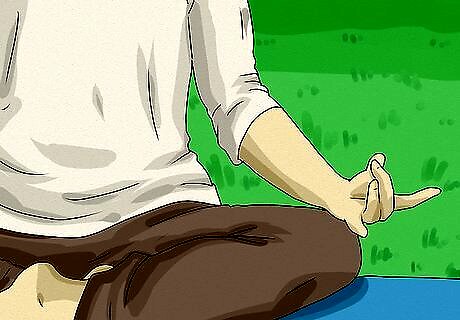
Practice mindfulness and meditation to get in touch with your soul. Using mindfulness, take yourself on a purely imaginary adventure with the goal of finding your soul and creating inner wholeness for yourself. You can do this on your own or by finding a pre-recorded journey (on Youtube, for example). To perform a soul retrieval, meditate and picture the following: Imagine walking into a cave. The deeper you go, the further you descend into yourself. There’s a light in the darkness, and the light grows as you move forward. Find and collect objects along the way that represent parts of yourself (a broken doll for your inner child, or an easel for your stifled creativity, for example). In time, let yourself reach the source of the light to the point that it engulfs the tunnel. This is your soul. Throw each of the objects you collected into the light to re-integrate the parts of you that they represent into your soul. Once all the objects are gone, breathe deeply. Let yourself feel revitalized by the light, and when you’re ready, step into it. Let the light touch every inch of you, down to your cells and molecules. Feel it binding to you. When you’re done, open your eyes. Afterward, reflect on your experience. If you have a journal, write down your thoughts there!

Discover and embrace your inner archetypes. Archetypes are essentially types of energy that work together to form the basis of your character. It’s believed that everyone has a variety of archetypes (the mother, the mentor, the lover, the bully, the warrior, the victim, and so on), and by embracing them, you can get in touch with all aspects of your personality and feel whole. To discover and balance your inner archetypes, use visualization and guided meditation to explore the spiritual energies inside you. Try writing about your archetypes (and how they manifest) in a journal. Then, try talking to your archetypes—and pay attention to how they manifest in your day-to-day behavior.
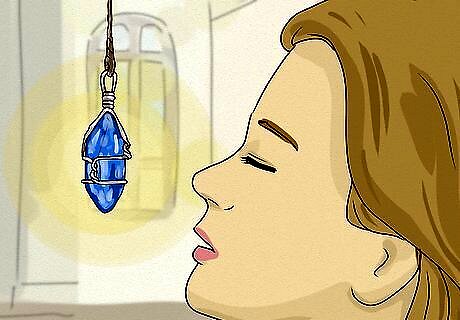
Enter an altered state of consciousness to retrieve your soul. Altered states (also known as traces) are believed to help you see yourself more consciously, build your psychic abilities, and develop a closer relationship with your soul. However, take your time and practice entering altered states for no more than 15 minutes at first; it can be an overwhelming experience. Different ways to enter trance states include: Self-hypnosis Visualization Mantra and prayer Breathwork Physical and emotional catharsis To perform self-hypnosis, try using a guided video on YouTube to enter a state of altered consciousness.

Cultivate self-love and compassion. Reconnecting with your heart through self-love can also help you retrieve your soul! After all, the heart is believed to be the gateway to the soul—and by giving and receiving love, you’re connecting to a powerful part of your soul. So, show yourself compassion and cultivate love for yourself through self-care and reciting daily positive affirmations.

Use inner child work and shadow work to overcome old traumas. Inner child work is about connecting to the piece of yourself frozen in childhood and addressing the needs that weren’t met as a child. Meanwhile, shadow work means exploring your “shadow side”—all the parts of you that you’ve had to suppress or deny for some reason over the years.Ultimately, inner child work and shadow work both play a big role in soul retrieval since they both concern healing lost parts of yourself and working through old trauma. For example, you may have buried your ambition and willpower after a parent discouraged your dreams or suppressed your rage and frustration after being told you were too moody as a child. Consider seeing a trained counselor or therapist to help you with this since both practices can bring up difficult memories at first.

Contact your spirit guides for help. It’s believed that spirit guides can guide you through spiritual challenges—especially something like soul loss and retrieval. Spirit guides can be any kind of spirit that you feel a connection with, from ancestors to angels, animals, or deities. While meditating, imagine yourself meeting your spirit guides and holding onto the unconditional love you get from them.

Get help from a psychotherapist or shaman. Therapy is rooted in psychology, while shamanism is rooted in spiritual beliefs. Ultimately, it’s your decision whether to consult a therapist or shaman for help—and if you have the means, you could even see both. A therapist can help you come to terms with your inner struggles, while a shaman can actively guide you through soul retrieval. It’s believed that dissociated parts of you can even drift into other, heavily guarded spiritual realms—but a shaman can help you access them to find your soul.
What causes soul loss?

Soul loss is thought to be caused by a significant trauma in your life. Theoretically, soul loss is a coping mechanism of sorts; by dissociating from trauma, your mind won’t get overwhelmed by it. However, trauma doesn’t go away overnight. So, if you neglect your trauma, it’s believed to result in soul loss over time—essentially, the growing feeling that you aren’t “whole.”In many shamanic cultures, “soul loss” is thought to be a spiritual illness. It’s hard to quantify soul loss or diagnose it because it’s not scientifically proven or acknowledged in Western medicine. Nonetheless, cultures that believe in spiritual afflictions (and healing) emphasize addressing the underlying causes of soul loss in order to fix the problem and heal your soul. Causes of soul loss include: Prolonged grief Events that made you feel helpless Addictions or substance dependency Any kind of abuse (emotional, physical, or mental) Unhealthy relationships (that lead to a loss of personal power) Rejection or abandonment Witnessing an unexpected death Sudden accidents Near-death experiences Being forced to act against your will or morals
Signs of a Lost Soul

Depression Depression is a clinical mental illness that should always be diagnosed by a mental health professional. However, it’s also believed that depression (which involves feeling directionless or worthless) is also a sign of soul loss.

Difficulty adjusting after trauma Struggling to adjust after experiencing trauma can indicate dissociation, which is thought to be connected to soul loss. For example, “trauma” could mean the death of a loved one, a divorce, or being abandoned somehow.

Unhealthy coping mechanisms It’s believed that someone experiencing soul loss might try to deal with their stress and fill the internal void with external things—like food, sex, gambling, or even substance abuse.

Feeling apathetic or disconnected If your current circumstances don’t align with your soul (for example, this could mean a bad work environment, a partner who takes advantage of you, or even just being unable to pursue your true passions), it may fracture your spirit and lead to soul loss.

Low energy and negativity This can be a side effect of depression or a separate issue. Some people get fatigued from insomnia, anxiety, stress, or other factors—and that lack of energy is believed to leave you vulnerable to the negative thought patterns that indicate soul loss.

Self-neglect When your soul is lost, you may struggle to take care of your health, pull yourself together, or even set aside any time to enjoy yourself.

Difficulty enjoying life Low energy and depression can also make it harder to feel present in life. If you find it difficult to feel good, enjoy life, and feel purposeful each day, it may indicate soul loss.

Chronic illness Were you chronically ill as a child? Did you have problems with your immune system or resisting illnesses? Although it’s always important to find a medical cause (and treatment), chronic illness is also believed to indicate soul loss.
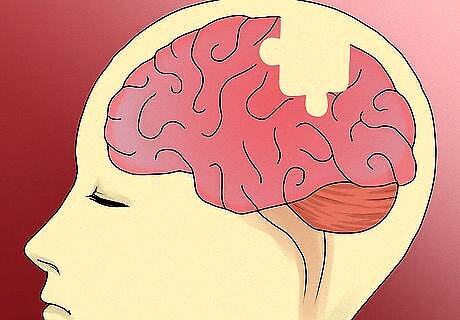
Memory gaps Sometimes it’s possible to blank out traumas in your life—so if you have gaps in your memory, especially after age 5, it’s believed to indicate soul loss.
Benefits of Soul Retrieval

Soul retrieval is thought to help you discover the lost pieces of yourself. It’s believed that your life can see a dramatic improvement once you’ve reforged the connection to your soul. You’re no longer numb or directionless; instead, each day feels like a new adventure waiting to be enjoyed. Being “ensouled” also helps you feel more present and centered in your daily life. Other benefits include: Feeling energized and awake Having more awareness of your choices and behaviors Feeling more grounded in your body Experiencing more lightness and joy Gaining mental clarity and hope Rediscovering a sense of purpose Improving your physical well-being Getting better sleep

















Comments
0 comment